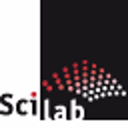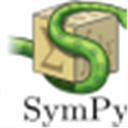Unlocking New Possibilities: Top SymbolicC++ Alternatives for Advanced Computation
SymbolicC++ is a powerful tool leveraging C++ and object-oriented programming to build computer algebra systems. Its focus on abstract data types, encapsulation, inheritance, polymorphism, and operator overloading makes it a robust choice for complex mathematical computations. However, for various reasons—be it specific feature requirements, platform compatibility, or a desire for open-source solutions—users often seek a SymbolicC++ alternative. This article delves into some of the best replacements available, offering diverse functionalities and approaches to symbolic and numerical computation.
Top SymbolicC++ Alternatives
Whether you're looking for a direct symbolic computation counterpart, a versatile numerical environment, or a comprehensive statistical analysis tool, the following alternatives provide excellent options to expand your computational capabilities beyond SymbolicC++.

GNU Octave
GNU Octave is a free and open-source computer program primarily designed for numerical computations, offering high compatibility with MATLAB. It's an excellent SymbolicC++ alternative for users focusing on numerical analysis and wanting a robust, cross-platform solution (Mac, Windows, Linux, BSD). A notable feature is its ANOVA test capabilities.

MATLAB
MATLAB is an enterprise-class commercial computing environment and programming language renowned for numerical computation. While not open-source, it's a comprehensive SymbolicC++ alternative available across various platforms (Mac, Windows, Linux, Web, Android, iPhone, iPad). Key features include File-sync, Simulink, batch plotting, and an embedded debugger, making it ideal for engineers and scientists.

R (programming language)
R is a powerful free and open-source software environment specifically designed for statistical computing and graphics. As a GNU project, it's a strong SymbolicC++ alternative for those focused on data analysis, statistical modeling, and visualization, running on Mac, Windows, Linux, and BSD. Its features include automatic data loading and data mining capabilities.

Sage
Sage is a free and open-source mathematics software system licensed under the GPL. It intelligently combines the power of many existing open-source packages into a common Python-based interface, making it an excellent SymbolicC++ alternative for diverse mathematical needs, including symbolic computation. It's available on Mac, Windows, Linux, and Web platforms.

Mathematica
Mathematica is a definitive commercial technical computing system covering a vast array of functionalities, including machine learning, neural networks, data science, and visualizations. While not open-source, it offers unparalleled depth as a SymbolicC++ alternative for advanced users on Mac, Windows, Linux, and Web, with features like symbolic computation, calculus solving, constructive geometry, equation solving, graphing calculator, algebra, and graphical components.

Scilab
Scilab is a free and open-source scientific software package for numerical computations, providing a powerful open computing environment for engineering and scientific applications. It's a robust SymbolicC++ alternative for numerical tasks, available on Mac, Windows, and Linux.

Maxima
Maxima is a free and open-source system for the manipulation of symbolic and numerical expressions, covering differentiation, integration, Taylor series, Laplace transforms, and more. It's a direct SymbolicC++ alternative for symbolic computation and algebra, available on Mac, Windows, and Linux.

wxMaxima
wxMaxima is a document-based interface for the Maxima computer algebra system, leveraging wxWidgets for native performance on Windows, X11, and Mac OS X. As a free and open-source front-end to Maxima, it provides an accessible SymbolicC++ alternative focusing on algebra and symbolic manipulation.

Xcos
Xcos is a graphical editor for designing hybrid dynamical systems models, closely integrated with Scilab. As a free and open-source tool available on Mac, Windows, and Linux, it serves as a valuable SymbolicC++ alternative for simulation and model-based design, allowing users to design, load, save, compile, and simulate models using its intuitive Palettes Browser.

SymPy
SymPy is a free and open-source Python library dedicated to symbolic computation. Its goal is to become a full-featured computer algebra system while maintaining a simple codebase. For Python developers, it's an excellent SymbolicC++ alternative for tasks involving algebra, education, equation editing, equation solving, and simulation, available on Mac, Windows, and Linux.
Each of these SymbolicC++ alternatives offers unique strengths, from specialized symbolic manipulation to broad numerical and statistical analysis capabilities. We encourage you to explore these options to find the best fit for your specific computational needs and preferences, whether you prioritize open-source flexibility, extensive feature sets, or particular programming language integrations.